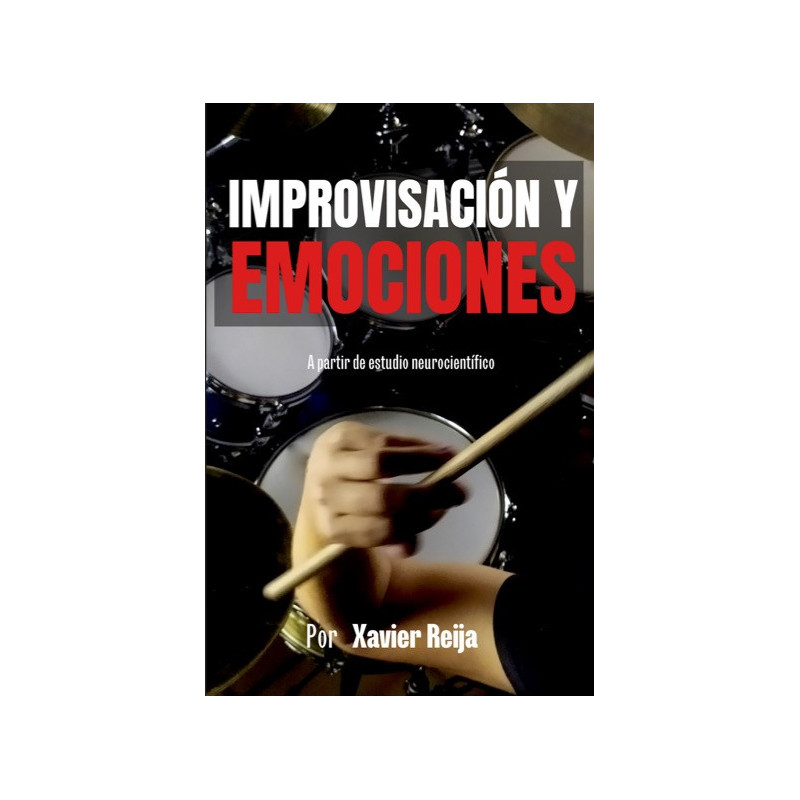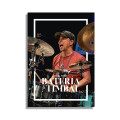We are in front of one of the most interesting books for musicians written in recent years. If you're looking for patterns and chops, don't keep reading. If you're looking to read about a scientific study about how you generate what you do when you're playing, this book will have to be read over and over again.
IMPROVISATION AND EMOTIONS BY XAVIER REIJA
This is a book aimed at any professional the music or any other discipline that is interested in knowing what it is the improvisation and how we improvise. That you are interested in deepening this term, knowing how our brain is activated during the act of improvising, what happens from different prisms, both physiological and cognitive and how you can learn to be better improvising.
A book written from the vision of the active professional musician, drummer, composer, with a wide experience as a teacher and who has dedicated the last 20 years to creating a working method for the learning and development of different techniques in the drum singularly. What I will show here is not a method in itself but a series of processes discovered as a result of working and expanding a methodology and eventually relating the emotions with the act of improvising.
During this development, a path of research has been generated that has led me to know people from very interesting and diverse fields apparently, through which I have been able to go decoupling this theory that today I explain here. I am sure they will be generated from here infinity of new ways given their extreme importance in fields like the musical teaching, the music therapy, the neuroscience or the psychology. I am sure that it will be the product of questioning, since there are discrepancies in definitions of aspects that I have needed and that I have used to realize these purposes. In any case this use has served me only to contextualize some processes related to the improvisation that may sometimes be convergent or divergent, but that in no way modifies what is discovered here.
On this road of research around the improvisation and their learning i have often needed to approach disciplines that were totally unknown to me. There are many factors that influence what we call and know as improvisation. We all usually speak and use the term to refer to an action that carries endless peculiar processes and which can be explained from different points of view. Here I will venture to theorize from a scientifically proven fact, about art, music, your learning, the emotions, thoughts, creativity and how all this relates to the improvisation.
On one side the neuroscience has been basic, since it has allowed me to measure cartesianly, performing a study with all the guarantees, a series of parameters that have been determinant and that have corroborated at the end some of the issues that intuitively formulated me and were central to this dilemma. It has shown us that there is a special state of consciousness that can be achieved with full attention and that it is decisive in the apparition the emotions when we improvise. From there I agree in the need to theorize about what it is the improvisation, from where it occurs, and what ingredients must have an action to be besides improvised, to be artistic, if at some point we can separate these two terms.
Through this analysis it follows the need to explain and differentiate from other fields, such as the psychology the philosophy even, in terms that describe actions related to the improvisation as it said or that they are part of it directly or indirectly. Originated these in different areas of the brain map as they are the emotions, feelings, thoughts, and how these influence the final result. In short what happens in our brain when we improvise or what should happen so that we can assert that we are improvising and by extension, what we should do to be better improvists.














@CUSTOMER_NAME@
@AUTHOR_PROFILE@ @COMMENT_ISO_COUNTRY@ @VERIFY_PURCHASE@@COMMENT_TITLE@
@COMMENT_COMMENT@